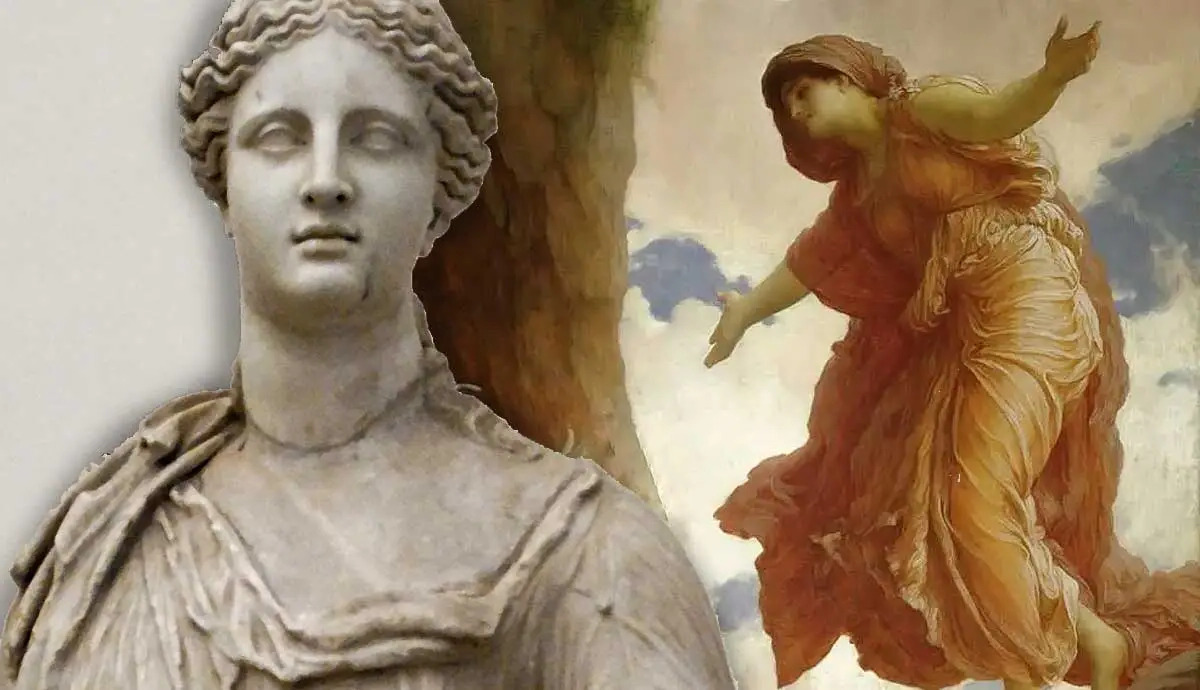
Ever wondered who kept the ancient Greeks' pantries full and their crops thriving? Meet Demeter, the Greek goddess of harvest, whose fascinating tales are as rich as the soil she's believed to bless. Demeter isn't just another deity from mythology; she's a symbol of life's sustenance, motherhood, and the cycle of life and death. Her stories weave through the fabric of ancient Greek culture, offering insights into how our ancestors viewed the natural world and its cycles. From her heart-wrenching separation from her daughter Persephone to the establishment of the Eleusinian Mysteries, Demeter's myths are ripe for the picking. Ready to dig into some intriguing facts about this revered figure? Let's get our hands dirty and unearth the essence of Demeter's enduring legacy.
Key Takeaways:
- Demeter, the Greek goddess of harvest, experienced deep sorrow and loss when her daughter, Persephone, was abducted by Hades. This led to the creation of the seasons, symbolizing the cycle of departure and return.
- Demeter's symbols, such as the cornucopia and the sheaf of wheat, represent her dominion over agriculture and the earth's fertility. Her story reflects themes of grief, hope, and renewal, essential to human existence.
Who Is Demeter?
Demeter, in Greek mythology, stands as the goddess of harvest and agriculture, presiding over grains and the fertility of the earth. Her Roman counterpart is Ceres, from which the word "cereal" is derived. Demeter's story is not just one of nurturing the land but also involves deep themes of loss, grief, and reunion, most famously through her daughter, Persephone.
The Myth of Demeter and Persephone
-
Persephone, Demeter's beloved daughter, was abducted by Hades, the god of the underworld. This event plunged Demeter into deep sorrow, causing her to neglect her duties as the goddess of harvest, which led to a barren earth.
-
During her search for Persephone, Demeter disguised herself as an old woman and, in her despair, caused a great famine to strike the earth, demonstrating her profound connection to the cycle of life and death.
-
Eventually, a compromise was reached where Persephone would spend part of the year with Hades in the underworld and the rest with Demeter. This cycle of departure and return was believed to cause the seasons.
Symbols of Demeter
-
The Cornucopia, often associated with abundance and harvest, is one of Demeter's most recognized symbols, representing the gifts of the earth.
-
She is also frequently depicted with a sheaf of wheat, symbolizing her dominion over agriculture and the fertility of the earth.
-
Another emblem of Demeter is the torch, which she carried during her search for Persephone, illuminating her dual role as a bringer of light and life as well as a figure of mourning and search.
Festivals in Honor of Demeter
-
The Eleusinian Mysteries, ancient Greek ceremonies held in honor of Demeter and Persephone, were among the most significant and secretive religious rites. Participants, sworn to secrecy, experienced and celebrated the mysteries of death and rebirth, reflecting the agricultural cycle.
-
The Thesmophoria was another festival dedicated to Demeter, celebrated exclusively by women. It focused on fertility and involved rituals for ensuring the earth's fecundity.
Demeter's Role in Ancient Greek Society
-
Demeter was not only central to Greek mythology but also to the everyday life and society of ancient Greece. Her influence extended to legal and civic institutions through the Thesmophoria, which contributed to the social and economic roles of women.
-
As the goddess of grain and agriculture, Demeter played a crucial role in the development of agriculture, teaching humans how to cultivate the land and reap its benefits, thus ensuring the survival and prosperity of society.
Lesser-Known Facts About Demeter
-
Demeter is sometimes depicted riding a chariot pulled by serpents, symbolizing her power over the earth and the cycle of life and death.
-
She had other children besides Persephone, including Plutus, the god of wealth, highlighting her role in agricultural abundance and prosperity.
-
In some myths, Demeter is credited with creating the poppy, a flower associated with sleep and forgetfulness, perhaps reflecting her own desire to forget her sorrow during Persephone's absence.
-
Demeter's grief was so profound that it was said to have stopped all growth on earth until Zeus intervened, illustrating the interconnectedness of divine emotions and the natural world.
-
Despite her immense grief, Demeter's story is ultimately one of hope and renewal, symbolizing the cycle of life, death, and rebirth that is fundamental to human existence and the natural world.
A Final Nod to Demeter's Legacy
Demeter, with her deep roots in Greek mythology, stands as a timeless symbol of life's cycles and the nurturing aspects of nature. Her story, rich with themes of love, loss, and rebirth, resonates across cultures and generations, reminding us of the powerful bond between the earth and humanity. Through festivals like Thesmophoria, her influence extends beyond ancient texts, celebrating the vital role of agriculture and fertility in sustaining societies. As we reflect on Demeter's enduring legacy, let's appreciate the natural world's gifts and recognize our role in preserving its balance. Her tales, woven into the fabric of history, continue to inspire and teach valuable lessons about resilience, hope, and the unbreakable connection between all living things.
Frequently Asked Questions
Was this page helpful?
Our commitment to delivering trustworthy and engaging content is at the heart of what we do. Each fact on our site is contributed by real users like you, bringing a wealth of diverse insights and information. To ensure the highest standards of accuracy and reliability, our dedicated editors meticulously review each submission. This process guarantees that the facts we share are not only fascinating but also credible. Trust in our commitment to quality and authenticity as you explore and learn with us.


